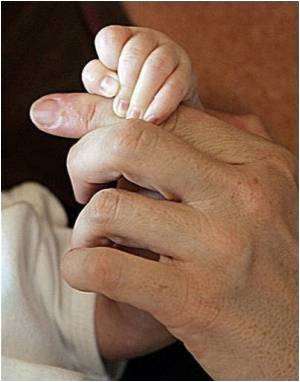Babies lavished with motherly affection are less likely to become anxious and stressed adults, according to an unusual study released Tuesday.

Psychologists have long thought that close, loving bonds make small children more resilient to adult life's trials and tribulations.
But earlier research based on memories, good or bad, have been subject to biased recall, and could not reach back to the very earliest interplay between mother and child.
To get a more objective take on whether mommy's warmth inoculates against grownup unease, researchers led by Joanna Maselko followed up on a study done in the early 1960s in the US state of Rhode Island.
Interaction between more than 1,000 pairs of eight-month old infants and their mothers was observed by professional psychologists, and evaluated along a scale ranging from "negative" to "caressing" and "extravagant."
Thirty-four years later, in the late 1990s, the original researchers tracked down more than half of the babies and conducted in-depth interviews and built-up psychological profiles.
Advertisement
Maselko and colleagues combed through this data to assess the long-term impact of tenderness in the mother-child bond.
Advertisement
The deferred, inter-generational link between caring and coolheadedness held true across different social classes -- rich or poor, it didn't seem to matter.
Even conflict within the family failed to cancel out the buffering, protective effect of maternal warmth.
At the other end of the spectrum, however, getting the cold shoulder as a wee one didn't seem to make matters worse.
"Surprisingly, we did not find a significant relationship between low levels of mothers' affection" and elevated stress levels, the authors concluded.
Source-AFP















